What Is Fairtrade?
When a product is fairtrade certified, it means that the product has undergone a rigorous certification process that ensures it was created with social, environmental, and economic considerations in mind. This certification is granted by independent organizations that assess the entire supply chain of the product, from the sourcing of raw materials to the manufacturing and distribution processes.
This article will discuss the fair trade practices of Kratom production, as explained by Kratom vendor and experts, Christopher’s Organic Botanicals.
Social considerations in fairtrade certification mean that the product was produced under fair and ethical working conditions. This includes ensuring that workers involved in the production process are paid fair wages, have safe working conditions, and are not subjected to any form of exploitation or discrimination. Fairtrade certification also promotes gender equality and supports the empowerment of marginalized communities.
Environmental considerations in fairtrade certification focus on minimizing the negative impact of the product’s production on the environment. This includes promoting sustainable farming practices, reducing the use of harmful chemicals and pesticides, conserving water and energy, and protecting biodiversity. Fairtrade certification encourages producers to adopt environmentally friendly practices and supports initiatives that promote conservation and environmental sustainability.
Economic considerations in fairtrade certification aim to ensure that the producers and farmers involved in the supply chain receive fair and stable prices for their products. Fairtrade certification guarantees that farmers are paid a minimum price that covers their production costs and provides them with a decent standard of living. Additionally, fairtrade certification often includes a premium that is invested in community development projects, such as education, healthcare, and infrastructure, benefiting the entire community.
Overall, fairtrade certification goes beyond just the product itself and encompasses the entire process of its creation. It provides consumers with the assurance that the product they are purchasing has been produced in a socially responsible, environmentally sustainable, and economically fair manner.
By choosing fairtrade certified products, consumers can contribute to a more equitable and sustainable global economy.Fairtrade and organic products are increasingly available for consumers who want to buy products that are better for the planet. And now, Kratom is attempting the ranks of fair-trade and organic product certification.
Fairtrade Kratom
Fairtrade Kratom is a product that upholds the highest standards of purity and ethical treatment of workers involved in its creation. Unlike conventional kratom production, where workers may be underpaid and subjected to poor working conditions, Fairtrade Kratom ensures that workers are paid fair wages and treated with respect and dignity.
By adhering to fair trade practices, the production of Fairtrade Kratom also contributes to the preservation of wild speciosa trees. These trees, which are the source of kratom leaves, are often at risk of being cut down for production purposes. However, by supporting fair trade, consumers can help protect these valuable trees and ensure their sustainability for future generations.
Fairtrade Kratom not only benefits the workers involved in its production but also promotes environmental conservation. By choosing this product, consumers can make a positive impact by supporting fair wages, ethical treatment of workers, and the preservation of wild speciosa trees.
Fair Trade Kratom is part of a movement towards sustainable agriculture. This movement seeks to ensure farmers in developing countries receive fair compensation for their work. It also ensures better conditions for them to remain in their communities long-term.
How Is Fair Trade Kratom Sourced?
To get fairtrade certified products, a company must allow a third-party organization to monitor their practices and guarantee certain criteria are met. There are several different certification programs available for many types of products, including everything from coffee beans to pharmaceuticals.
We DO NOT currently have certified organic or certified fair trade kratom. However, a fair trade movement is gaining momentum.
Fairtrade Kratom is sourced from independent farmers and cooperatives which promote:
- Environmental conservation,
- Social responsibility,
- Economic stability for all parties involved.
For kratom specifically, the plants used for harvesting are sourced from certified organic farms that prioritize sustainable and environmentally friendly practices. These farms ensure that the kratom plants are cultivated without the use of harmful chemicals such as pesticides, herbicides, or synthetic fertilizers. By adhering to organic farming methods, the farmers aim to protect the integrity of the kratom plants and maintain the purity of the final product.
The traditional method of growing mitragyna speciosa, commonly known as kratom, is referred to as “slash and burn.” This technique involves clearing a patch of land by cutting down existing vegetation and then burning it. The ashes from the burned vegetation act as a natural fertilizer, enriching the soil with essential nutrients. This process creates a fertile ground for the kratom plants to thrive.
However, it is important to note that the slash and burn method, although traditional, is not widely practiced in the kratom industry today. Many farmers have transitioned to more sustainable and responsible cultivation methods to protect the environment and ensure the long-term viability of kratom production.
By opting for certified organic farming practices, kratom farmers prioritize the health and well-being of both the plants and the consumers. These practices not only eliminate the risk of harmful chemical residues in the final product but also contribute to the overall sustainability of the kratom industry. Organic farming methods promote biodiversity, soil health, and water conservation, making them a preferred choice for conscientious kratom enthusiasts.
The trees are grown for several years. After that, the farmers move on as the soil is depleted. The farmers repeat this process, as necessary.
This method of farming contributes to widespread deforestation in Southeast Asia. Farmers often use large quantities of fertilizers and pesticides. This can have long-term negative impacts on soil fertility. Furthermore, water supplies can become contaminated.
Fairtrade practices include:
- Fair pay for workers
- Safe working conditions
- Considerations for the environment are considered throughout production or harvest processes.
- Foreign traders must follow local or national laws.
Key benefits of Fairtrade
Fairtrade is a transformative movement that aims to bring about positive change in the global trade system. By advocating for fairer trade practices, Fairtrade ensures that wealth is transferred back to farmers and workers in developing countries who have long been marginalized and exploited by the current trade system.
One of the key objectives of Fairtrade is to provide farmers and workers with a decent income and decent work. In many developing countries, small-scale farmers and workers often face numerous challenges such as low wages, poor working conditions, and lack of access to resources and markets.
Fairtrade seeks to address these issues by setting fair minimum prices for products, which are often higher than the prevailing market prices. This ensures that farmers and workers receive a fair share of the value of their products, enabling them to earn a sustainable income and improve their livelihoods.
Moreover, Fairtrade also promotes social and environmental sustainability. The movement encourages farmers and workers to adopt sustainable farming practices that minimize the use of harmful chemicals and protect the environment. By adhering to strict environmental standards, Fairtrade certified producers contribute to the preservation of biodiversity and the conservation of natural resources.
Fairtrade’s impact goes beyond economic empowerment. By empowering farmers and workers, Fairtrade helps to strengthen local communities and reduce poverty. With increased income and improved working conditions, farmers and workers are able to invest in education, healthcare, and other essential services for themselves and their families. This, in turn, contributes to the overall development and well-being of the communities they belong to.
As the leading independent global movement for trade justice, Fairtrade plays a crucial role in raising awareness about the injustices of the current trade system. Through advocacy and campaigning, Fairtrade seeks to influence governments, businesses, and consumers to prioritize fair trade practices and support the rights of farmers and workers. By mobilizing a global network of producers, consumers, and activists, Fairtrade strives to create a more equitable and sustainable trade system that benefits all stakeholders involved.
In conclusion, Fairtrade is a powerful force for change in the world of trade. By transferring wealth back to farmers and workers in developing countries, Fairtrade not only improves their lives but also promotes social and environmental sustainability. Through its advocacy efforts, Fairtrade aims to create a fairer and more just trade system that benefits everyone involved.
Why Do Fair Trade Products Matter?
Buying fair trade products, such as Kratom, helps support the people who make them by providing a sustainable income.
Whether or not you prefer kratom in powder form, kratom extracts, or tea bags sustainable kratom is what we must achieve. Buy kratom online from brands or online vendors that use 3rd party lab testing.
Fairtrade products matter for everyone involved, including:
- Workers
- The environment
- Consumers benefit from Fairtrade Kratom. It ensures greater transparency and accountability of the supply chain. This is essential for the consumer.
Kratom Farmers may not be receiving fair compensation or they may be damaging local ecosystems through deforestation or pesticide use. This could mean that consumers are not getting what they pay for. Furthermore, the destruction of precious land and ecosystems could lead to a shortage in the supply.
What is a Fairtrade premium?
The Fairtrade Premium is a financial incentive provided to farmers and workers in addition to the selling price of their products. It is an extra sum of money that is specifically allocated to support and improve the livelihoods of the individuals involved in the farming or working community.
The Fairtrade Premium is a unique feature of the Fairtrade system, which aims to ensure fair and sustainable trade practices. It is designed to address the economic challenges faced by farmers and workers in developing countries, who often struggle with low wages and limited access to resources and opportunities.
The additional money received through the Fairtrade Premium is not predetermined or fixed, but rather varies depending on the specific product and market conditions. It is typically negotiated and agreed upon between the Fairtrade organization and the producers, taking into account factors such as production costs, market prices, and the needs of the community.
One of the key principles of the Fairtrade Premium is that it is democratically managed by the farmers and workers themselves. This means that the individuals directly involved in the production process have the power to decide how the funds should be utilized. They form a committee or cooperative, which represents their interests and collectively makes decisions on how to allocate the Premium.
Fairtrade Premium funds various projects based on community needs and priorities. These investments can include infrastructure such as schools, healthcare facilities, or clean water systems. Additionally, there are initiatives to improve agricultural practices through training and resources. These initiatives specifically focus on organic farming or sustainable techniques.
The Fairtrade Premium helps with education, training, gender equality, and empowering marginalized groups in the community. This can help farmers and workers improve their lives. It can be done by providing them with healthcare, improving their homes, or assisting them in finding alternative sources of income.
By providing this additional financial support, the Fairtrade Premium aims to create a more equitable and sustainable trading system. It helps to address the imbalances in global trade and ensures that farmers and workers receive a fair share of the value generated by their products. Ultimately, the Fairtrade Premium contributes to the overall well-being and development of the farming and working communities in Indonesia, enabling them to build a better future for themselves and their families.
They possess the power to determine how the money should be allocated. Their goal is to better their own lives and the environment of the surrounding area. The farmers and workers are in the best position to understand their requirements and prioritize them accordingly.
Conclusion
Kratom leaves, a product imported from Southeast Asia that has been used for hundreds of years in traditional medicines, is now being sold to Western countries around the world for its benefits. Kratom is an all-natural botanical that has many properties beneficial to the mind and body. However, with increased demand comes an increased need for proper regulation and requirements for sustainability and fair trade Kratom production.
Read Our Kratom Blog for further information about fairtrade kratom and the kratom industry.

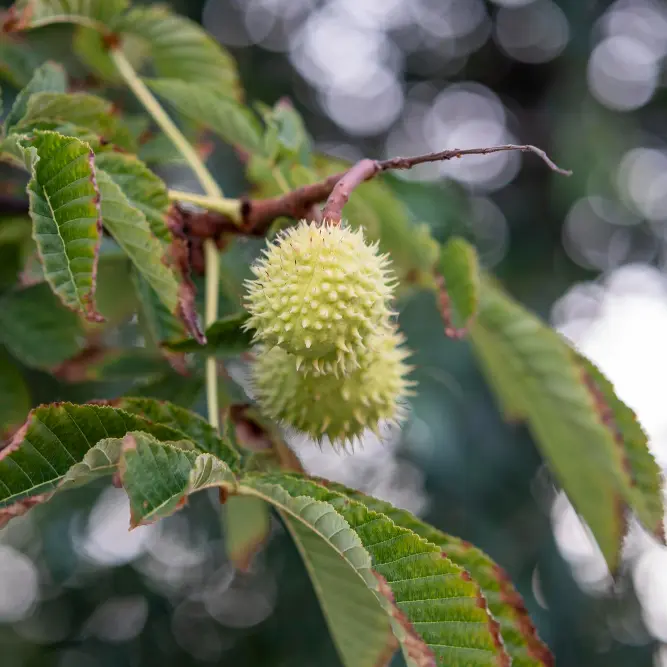
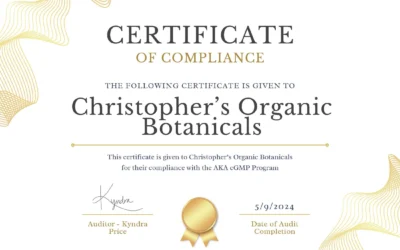
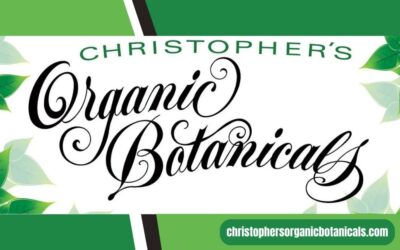
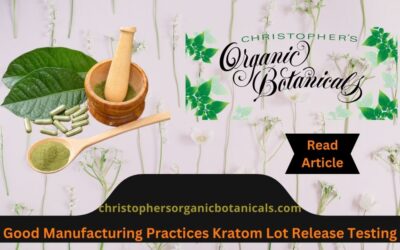
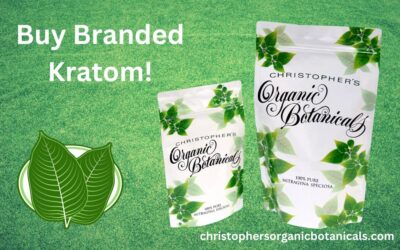
0 Comments